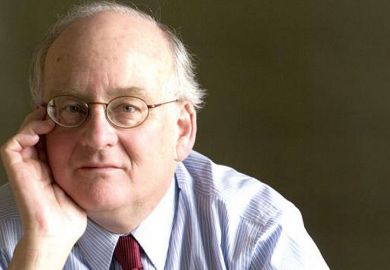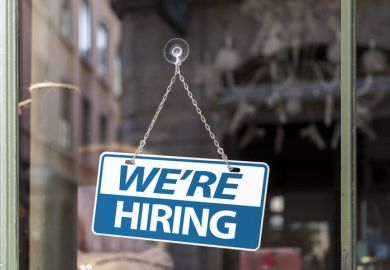The UK government should learn from the US’ mistakes when looking at ways to reform its higher education system and measure teaching and learning quality, a conference has heard.
Richard Garrett, director of the Observatory on Borderless Higher Education (OBHE), said that although there is “often ill-informed reverence for the US system”, it would benefit the UK to “truly understand the details and nuances” rather than to “assume the elite schools somehow characterise the entire system”.
Answering questions at last week’s OBHE annual conference in London, after a session on how other countries’ experiences could inform England’s teaching excellence framework, Mr Garrett said: “The US has some real lessons and warning signs as to what can go wrong when you try to innovate without adequate regulation or recruit very non-traditional students without regulating the student experience.”
He added: “There’s not enough centralisation [in the US]. There’s perhaps excessive diversity at times. The relationship between price and value isn’t very clear. So I think the UK is trying to get the best of greater diversity and more flexibility on price, but without inheriting some of the downsides.”
During his speech, Mr Garrett said that “most countries seem to be trying to emulate the US in some way”. “The UK, for example, is moving away from essentially zero fees to more market-based fees. [There is] diversification of provision, more private provision,” he said.
However, he warned, there is “growing anxiety and tension” over return on investment in the US. He presented data showing that students under the age of 21 who study full-time have more than an 81 per cent chance of graduating within six years. But, he said, as you get “more non-traditional” by delivery mode or by age, “the chance of graduating gets slimmer and slimmer”.
He also spoke about the US College Scorecard, which provides data for each US university on measures such as graduation rates, tuition fees and graduate salaries, with the aim of allowing prospective students to compare institutions.
“What’s striking is there is really nothing about the actual student experience,” Mr Garrett said. “The government is trying to capture something it really can’t capture. That makes schools anxious, and ultimately students don’t have a particularly full picture of what’s going on.”
Carolyn Campbell, a senior consultant at the OBHE, also spoke at the conference. She suggested that the UK should wait until the outcomes of the Higher Education Funding Council for England’s “learning gain” projects have been revealed before “setting some of the measurements and metrics for teaching excellence”.
POSTSCRIPT:
Print headline: UK: learn from ‘downsides’ of US system
Register to continue
Why register?
- Registration is free and only takes a moment
- Once registered, you can read 3 articles a month
- Sign up for our newsletter
Subscribe
Or subscribe for unlimited access to:
- Unlimited access to news, views, insights & reviews
- Digital editions
- Digital access to THE’s university and college rankings analysis
Already registered or a current subscriber? Login






